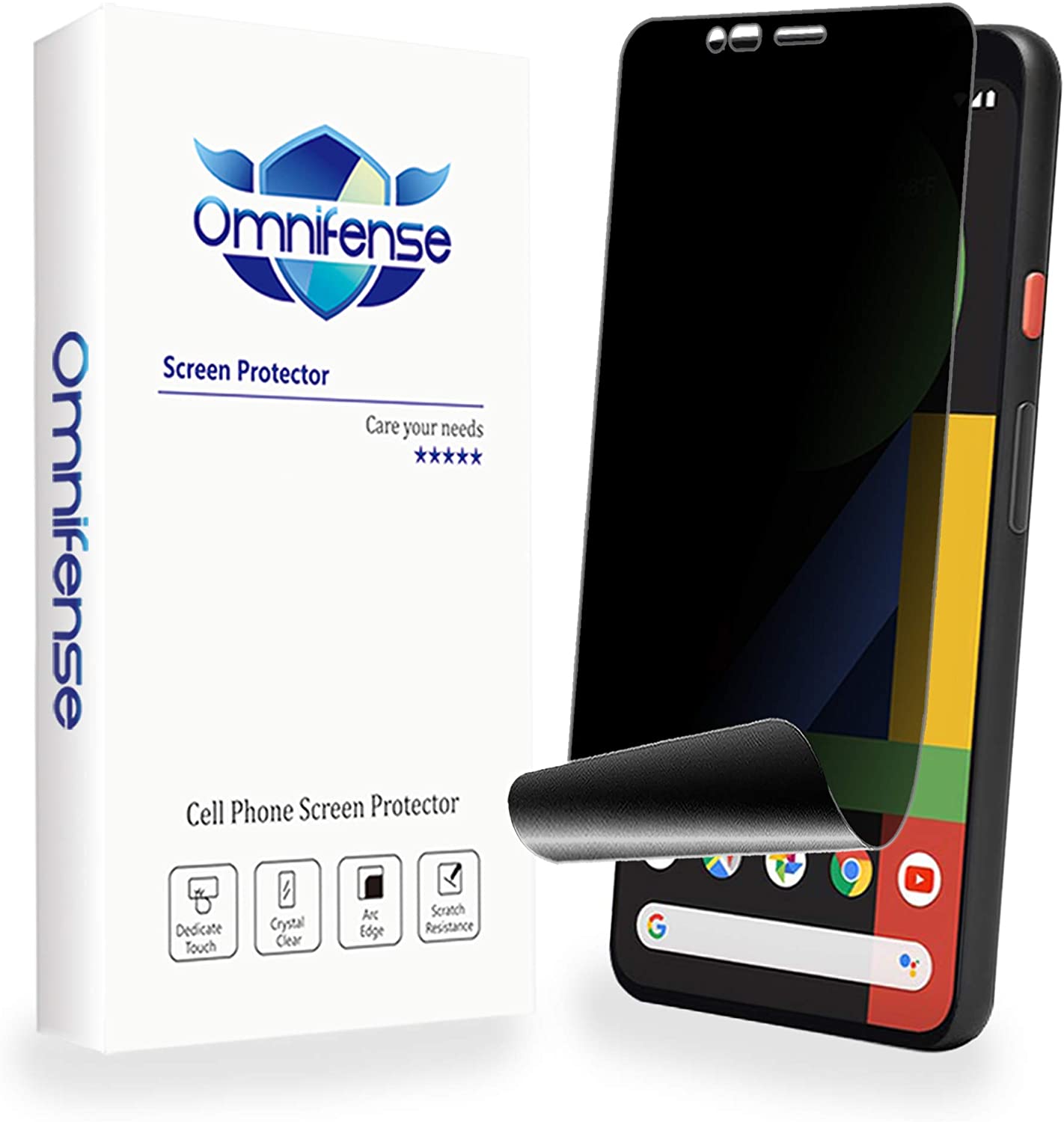Affiliate links on Android Authority may earn us a commission. Learn more.
What you need to know about privacy screen protectors
Published onMarch 12, 2025
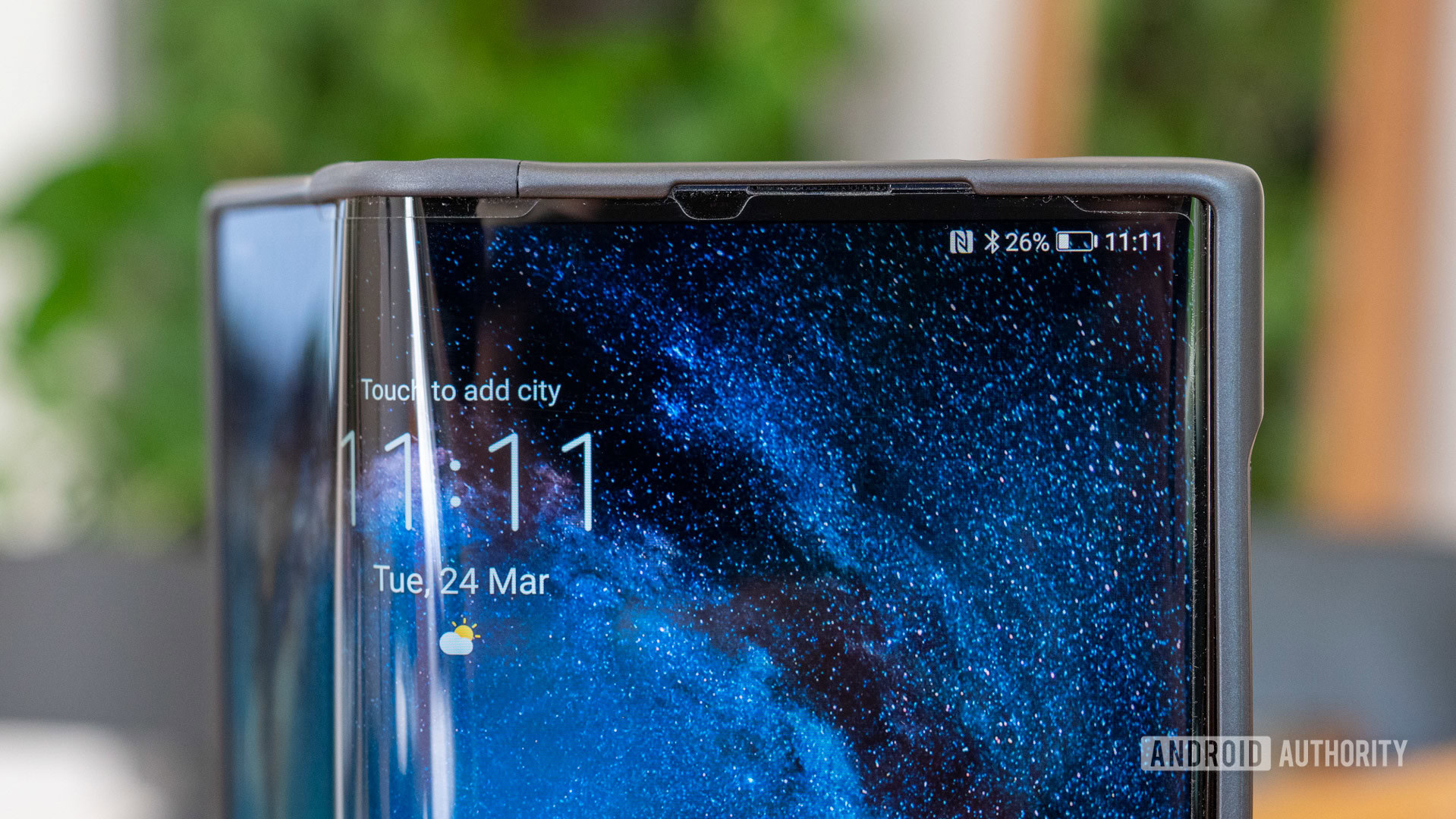
Security features like end-to-end encryption, two-factor authentication, and a good VPN can help to protect you while online. However, something as simple as a sneaky glance can cause privacy issues that digital security can’t fix. If you’re worried about this, using a privacy screen protector is the way to go. What are they, and how do they work? Here’s everything you need to know about privacy screen protectors!
Do you use a screen protector on your phone?
Looking for more ways to keep your phone safe and to get the most out of it? Don’t forget to check out our guides to the best cases and mobile accessories to learn more.
What is a privacy screen protector?
A privacy screen protector serves double duty by keeping your display scratch-free while also protecting your data from prying eyes. Like a regular screen protector, these can be made of PET film or tempered glass. However, they have an additional anti-spy layer that limits the viewing angle of your display.
Do you need one?
“Visual hacking” is a fancy way of describing how someone sits or stands around you and looks at what’s on your device’s screen. It may seem harmless, but it’s worth considering since many of us do almost everything on our phones.
Using the phone for everything, from social media to online banking, has become second nature. However, if you’re logging into accounts and checking sensitive information, others might be able to see it all as well, while you unknowingly type away. We all love the large, bright, beautiful displays of our phones, but they certainly aren’t great for privacy.
Of course, it’s not just about malicious intent. You might not want others to know what you’re doing on the phone. Regardless of what you’re watching, what websites you visit, or the social media you scroll through. We do a lot on our phones, and nobody else but you should know what that is. Well, you and all of the companies actively collecting your data.
The best privacy screen protectors to buy
ZAGG
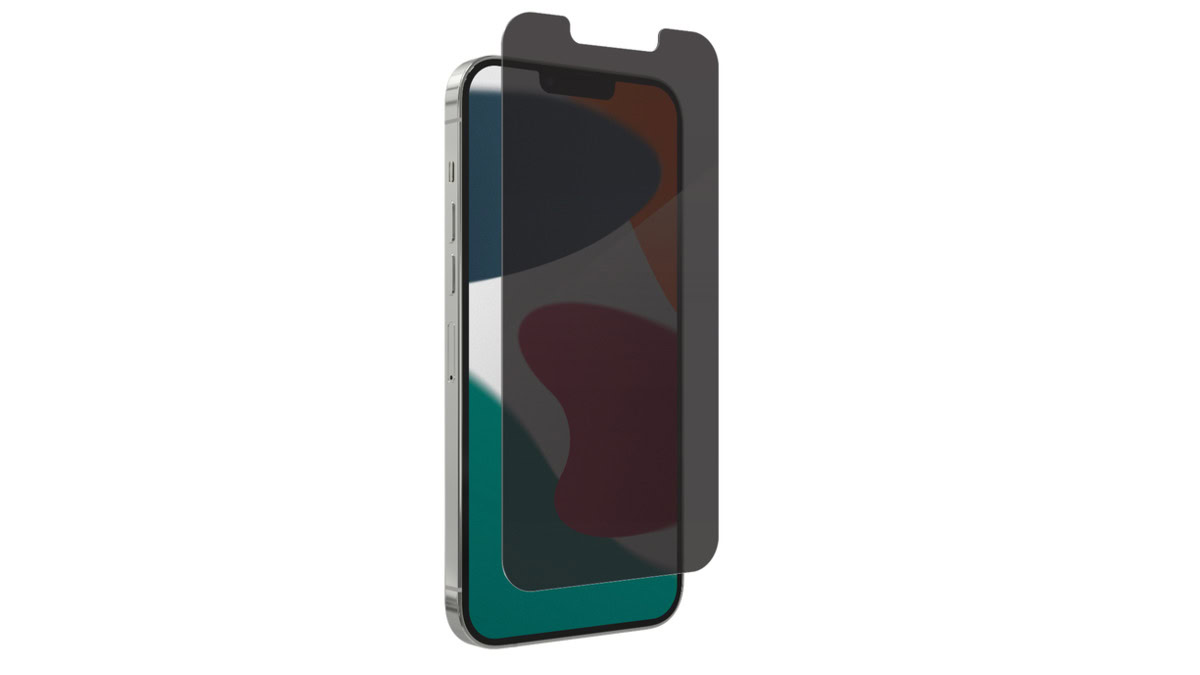
ZAGG makes some of the best privacy screen protectors for phones. The four-way filter hides information in both portrait and landscape mode. It offers advanced impact protection to keep the display safe and comes with anti-microbial treatment for an additional layer of safety. Unfortunately, ZAGG’s privacy screen protectors are currently only available for iPhones.
UniqueMe

If you’re looking for privacy screen protectors for Android devices, UniqueMe is a great option to consider. It’s a two-way privacy filter with a 56-degree viewing angle. You’ll get different variants depending on the phone you have. Anything with a flat display, like the iPhone 14 series or iPhone 15 series, will have a tempered glass option. To make it easier to install with curved screen phones, UniqueMe also has a hybrid screen guard with a 7H hardness rating.
Magglass
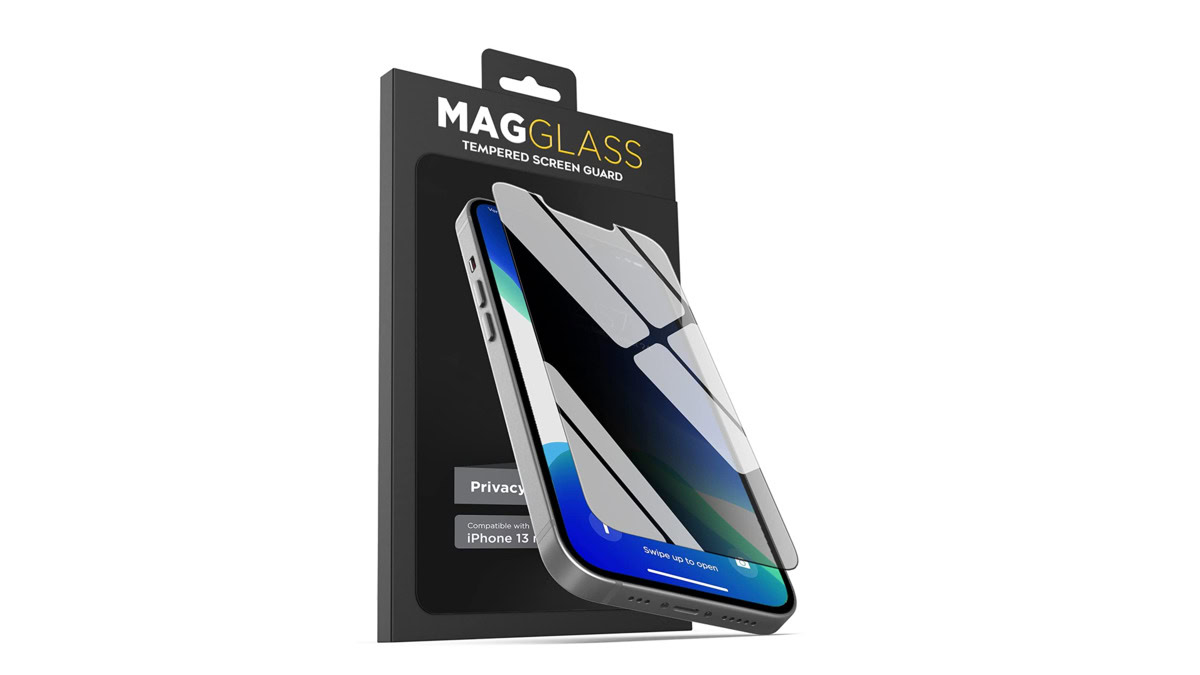
Magglass makes privacy screen protectors for iPhones and Android devices. However, these are best suited for iPhones, since, in most cases, the in-display fingerprint scanner doesn’t work through the privacy layer. If privacy is a must-have and you’re willing to sacrifice the fingerprint scanner, Magglass privacy screen guards are very high-quality. Just keep the caveat in mind.
How does a privacy screen protector work?
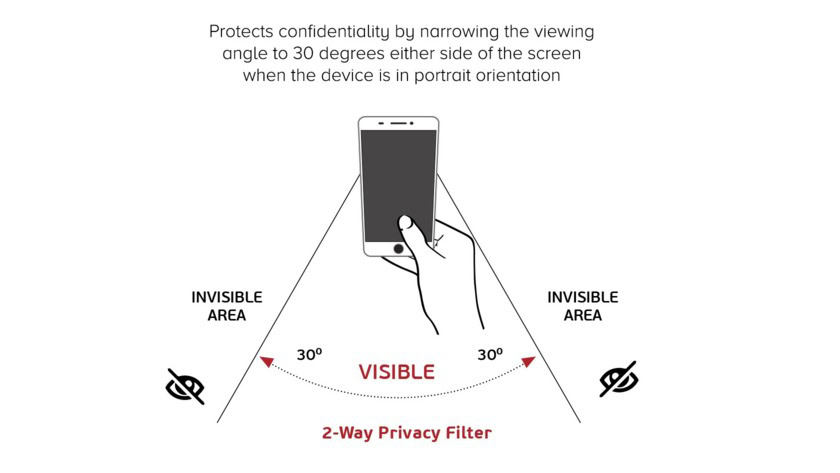
Most privacy screen protectors use micro louver technology that allows light from the display to pass through only at certain angles. This is essentially how Venetian window blinds work, but at a microscopic scale. The filter layer is set to a narrow front angle, usually 60 or 90 degrees, and anyone looking at your screen from beyond that viewing angle won’t see anything.
The best privacy screen protectors and what to look for
There are quite a few brands that make privacy screen protectors. There are some things you should know before buying one, though.
- Micro louver technology: Some privacy screen protectors use micro louver technology. These provide a better viewing experience than other options that are just darkened glass or film.
- Tempered glass or film: This is a personal preference regarding the type of display protection you’re looking for. Both can have privacy layers. Finding full coverage with a tempered glass panel can be a touch difficult, especially if the phone has a curved screen. Tempered glass is much better when it comes to protecting the display, though.
- Two-way or four-way privacy: A two-way filter shows a darkened screen only in the portrait orientation. The obvious advantage here is that if you want to share something on your phone, all you have to do is turn the phone to landscape. However, if complete privacy is what you are looking for, 4-way privacy filters work in both orientations.
- Viewing angle: The viewing angle has to be narrow enough so that people standing or sitting next to you are out of range. If a viewing angle is too wide, it defeats the purpose of having a privacy screen protector. On the flip side, if it’s too narrow, it may impact your own viewing experience. You’ll have to face the screen head-on to make sure that you can see the screen properly. With most privacy screen protectors, the available viewing angle is usually 60 or 90 degrees.
Advantages of privacy screen protectors
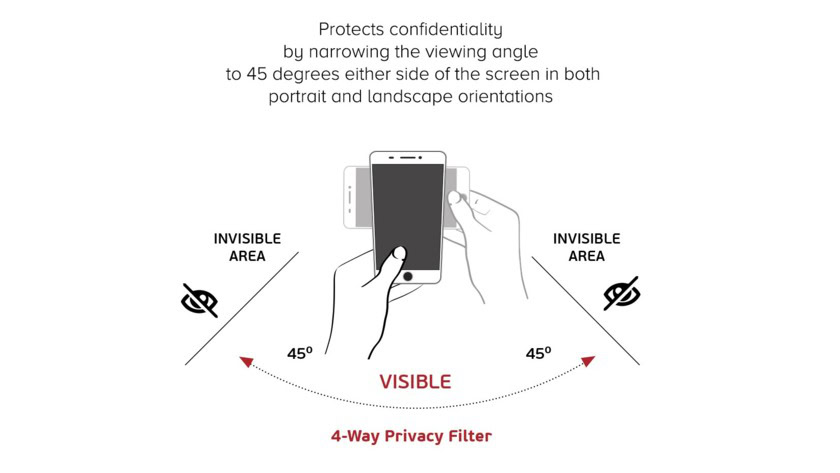
The most obvious advantage of using a privacy screen protector is in the name — privacy. Knowing that any sensitive information is safe from the prying gaze of bystanders is a big positive.
It isn’t just about privacy in public areas either. If a spouse, partner, or roommate gets annoyed that you are on your phone all night, a privacy screen protector helps here as well. It guarantees they aren’t disturbed by the light from your phone, while you can continue to enjoy it without any issues.
Of course, the privacy screen protector also gives you the same advantage as a regular screen protector. It provides a great way to keep the display free of scratches and safe during accidental bumps and drops.
Other advantages are often manufacturer-specific. Some screen protectors have an anti-glare coating, blue light filter, filters to reduce eye strain, and oleophobic and hydrophobic coatings to keep the protector free from fingerprint and oil smudges.
Disadvantages of privacy screen protectors
Privacy screen protectors sound fantastic on paper. Unfortunately, the reality is a little bit different. Many companies promise no issues with clarity or brightness, but that isn’t always the case.
You can overcome the problem by pumping up the brightness of the display, but this will cause the battery to drain faster. Having the brightness too high could also reduce the effectiveness of the privacy filter when the phone is angled away.
The need to hold the phone directly in front of you also prevents quick sideways glances at the time or notifications. I do this quite often, and it’ll take a lot of getting used to if I have a privacy screen protector on my phone.
Sharing something on your screen becomes difficult as well. You’ll have to angle it just right to show other people a video or a photo. Two-way privacy screens help by letting you show the display without issue in landscape. This won’t be possible with four-way privacy screen protectors, though.
Finally, the reduced viewing angle may actually not be as limiting as you’d need. As low as viewing angles of 60 or 90 degrees sound, anyone standing nearby, say on the subway or a bus, will still be able to see over your shoulder and get a somewhat clear view of the display.
